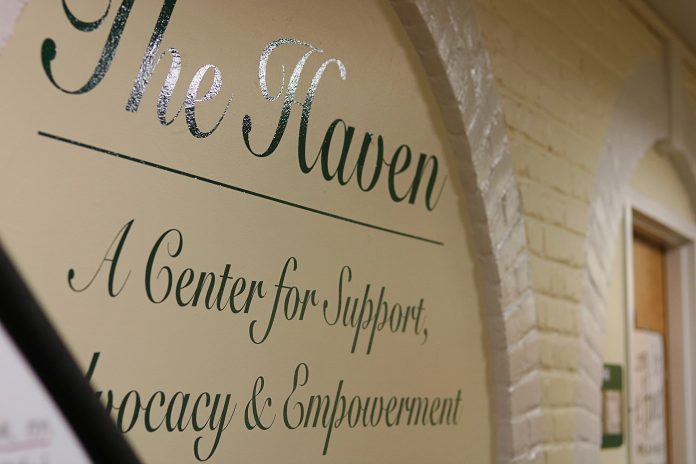Content Warning: This article contains mentions of sexual assault.
Wednesday, Nov. 15, U.S. Senator Tim Kaine (D-Va.) introduced the Support for Universities and Colleges to Champion the Educational Success of Survivors Act. This bill would provide institutions of higher education with additional resources to support student survivors of sexual assault and other violence in their academic and career goals.
According to a report from the Association of American Universities, 13% of the graduate and undergraduate students surveyed reported having experienced sexual assault or violence. For survivors of sexual trauma, research has shown that in many cases, these instances of trauma can severely impact students’ grades and continuation of their studies.
“Colleges and universities have an obligation to do everything they can to prevent sexual assault on their campuses and provide resources to support student survivors,” Kaine said in a press release. “This bill is critical to helping ensure survivors of sexual assault can access the support they need to pursue their academic and career goals.”
The bill would award five-year grants to institutions of higher education through a competitive application process. The funding would offer student survivors specialized resources to achieve academic outcomes and complete their degrees. The application process would prioritize community colleges, historically Black or Tribal colleges and schools with a history of violations of Title IX.
As a member of the U.S. Senate’s Health, Education, Labor and Pensions Committee, Kaine has focused on actively addressing issues of sexual assault on college campuses through prevention, handling claims made on campuses and ensuring long-term treatment and resources for survivors. He discussed this threefold approach in an online press conference, specifying how the SUCCESS bill targets the third step.
“The research shows very strongly that when somebody has been victimized by sexual assault, it really affects their educational career,” said Kaine in the online press conference. “They’re more likely to drop out. They’re more likely to find the campus environment, even if they change campuses, a hostile place that causes them to have post-traumatic stress. And so what we want to do is make sure that those who’ve been through this experience end up with the services that they need to successfully complete their education and be able to move on in their lives in a way that they can be successful.”
The bill is endorsed by the American Psychological Association, the End Rape on Campus Initiative, the Rape, Abuse and Incest National Network and the Survivor Fund Hub.
For survivors of domestic and sexual violence in the greater Williamsburg area, the Avalon Center aims to increase prevention and education and provide patient-centered support measures. In an email to The Flat Hat, the Center expressed how student survivors can benefit from the implementation of the SUCCESS Act.
“One particular aspect that could be advantageous to student survivors, beyond the resources for counseling, is the increase in training for faculty and administrators on patient-centered care and recognizing trauma,” the Avalon Center representative wrote. “When the people that survivors consistently have to interact with are more trauma-informed, it will make for a healthier environment and survivors will feel more supported, which goes a long way in aiding the healing process.”
The Avalon Center also suggested that institutions receiving grants should be required to collaborate with local existing sexual assault centers. Additionally, the Center suggests that a more pronounced statement regarding the expectation and importance of confidentiality should be issued within the legislation.
In an email to The Flat Hat, director of The Haven Liz Cascone emphasized the importance of recognizing the impact of sexual violence and abuse on the academics of student survivors.
According to Cascone, it is university practice not to comment on pending legislation. However, Cascone noted that The Haven partners with the Dean of Students’ Office and the Office of Compliance and Equity to assist each student survivor in reaching their individual academic goals. The Haven also provides emergency funding for survivors to pay for wrap-around needs, which is one of the intended uses of funds outlined in Sec. 124, clause (e)(6) of the bill.
Sarah Wesley ’25, a confidential advocate at The Haven, noted her personal perspective on the importance of offering specific resources based on each survivor’s wishes. She listens to survivors’ stories, affirms what happened to them is not their fault and asks them to choose which steps they would prefer to take next, utilizing the available resources.
“What do you want from this? How can I help you take the next steps forward? Just based on their answer, whatever they want to do with it.” Wesley said.
President of Someone You Know, a peer-education group at the College, Terra Sloane ’25 works alongside fellow students to create educational content to raise awareness about the impact of sexual violence on campus and give students the resources to support survivors.
In an email to The Flat Hat, Sloane commended the bill for its proposed increase in patient-centered faculty and staff training. However, she expressed a desire for a prevention piece to be included within the legislation to proactively mitigate instances of sexual assault rather than only approach the impacts of assaults after it has already happened.
“So often, survivors on college campuses feel isolated from people due to a lack of knowledge when it comes to addressing the intricate differences of trauma and processing and acts of violence,” Sloane wrote. “I believe that oftentimes, people responding to reports or disclosures can only imagine one kind of violence and one kind of response to violence. In sexual violence prevention and survivor support services, we know that is not the case. Everyone’s experience is different, and making sure that the staff members directing students to resources or helping with accommodations know those differences is incredibly important.”

